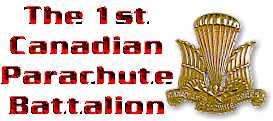

Operation Varsity consisted of utilizing the U.S. 17th Airborne Division and the British 6th Airborne Division in a combined parachute, glider attack in order to seize and hold a wooded area which overlooked the part of the Rhine River where the main assault would take place, therefore denying the enemy artillery spotters the use of the area. The forces would also prevent enemy reinforcements from reaching the river from the east of Wesel. The 5th Parachute Brigade, an element of the 6th British Airborne Division was designated to drop to the northwest of Hamminkeln, and the 3rd Parachute Brigade would be dropped in the north-west corner of the Piersfordter Wald.
The plan called for the Allied artillery to bombard the whole landing zone prior to the airborne landing. This was aimed at denying enemy armour and heavy guns a chance to isolate and decimate the airborne force as it tried to land. Operation Varsity involved 10,000 reconnaissance, bomber, fighter, parachute, tug aircraft, and gliders all converging in one area at one time. Prior to giving his Operation Order, Brigadier Hill had this to say:
"Speed and initiative is the order of the day. Risks will be taken. The enemy will be attacked and destroyed whenever he is found."
The Airborne attack began on March 24, 1945, as C-47 transports carried the 1st Canadian Parachute Battalion into an already busy battle zone. The drop took over three hours to complete; and the battle continued until about noon, by which time Battalion positions had gradually been consolidated and the enemy pushed back. It was on this day that Corporal F.G."Toppy" Topham, a medical orderly, who even though wounded, repeatedly went into exposed areas, to give aid to injured comrades. His bravery was later recognized with the award of the Victoria Cross.
Lt. Col Nicklin, the Commander of the First Canadian Parachute Battalion was also killed on this day as he landed in a small clump of trees, directly above a German machine gun crew. The Colonel's unfortunate death was felt throughout the unit and by everyone in the Brigade including Brigadier Hill. Command was assumed by Major G.F. Eadie, who was later promoted and continued in command for the duration of the war.
